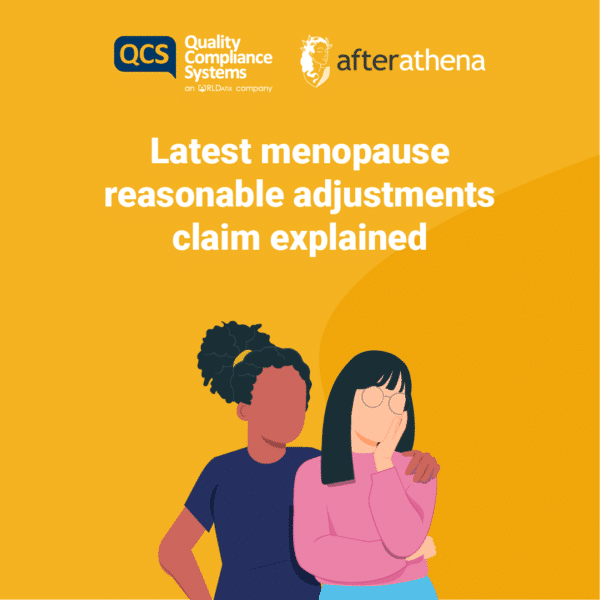Menopause: Telesales Consultant at Direct Line wins reasonable adjustments claim
Lynskey v Direct Line Insurance Services Ltd ET1802204/2022 and 1802386/2002
Facts
Mrs Lynskey worked for Direct Line Insurance Services Ltd from 2016 until her resignation in May 2022. Her performance ratings were good for the first four years of her employment. However, in 2019, she started to suffer from menopause symptoms which adversely affected her work performance.
Direct Line referred Mrs Lynskey to occupational health on 20 August 2021, who advised that she was likely to be disabled.
Amongst other matters, Direct Line failed to consider Mrs Lynskey’s menopause symptoms when they issued her with a disciplinary warning and also prematurely withdrew her sick pay without warning.
In May 2022, Mrs Lynskey resigned and brought claims for constructive dismissal and disability, age and sex discrimination in the tribunal. She told the tribunal that she has been asked to meet normal performance standards in her role, but struggled to meet them due to menopause symptoms including low mood, anxiety, mood swings, effects on her memory and concentration.
Decision
The Employment Tribunal upheld many of Mrs Lynskey’s claims for discrimination arising from disability and failure to make reasonable adjustments, awarding £64,645. However, it dismissed her constructive dismissal and age and sex discrimination claims.
Comment
The case illustrates the difficulties an employer can face when trying to fairly manage a disabled employee failing to meet performance requirements. Whilst it was found that Direct Line did take steps to assist Mrs Lynskey, the Tribunal was clear that more should have been done (in particular, an earlier referral to occupational health).
This case highlights the need for managers to receive menopause training, so that they can identify issues which may arise from the menopause and how to support members of staff. While Mrs Lynskey’s manager was aware of her symptoms, she failed to recognise at the appropriate stage that they could amount to a disability.
Guidance suggests that staff may be more confident discussing their menopause experience with managers if they know managers are trained to give them support. More general training to non-managerial members of staff, including men, can help anyone experiencing menopause to better understand their symptoms and to know what support is available. It can also reduce offensive and insensitive jokes.
Employers should consider their work environment and the specific needs of staff experiencing menopause. For example, in the care sector:
- The temperature and ventilation of the workplace
- The material and fit of the organisation’s uniform
- Whether there is somewhere suitable for staff to rest if necessary (for example, a quiet room)
- Whether toilet facilities are easily accessible
- Whether cold drinking water is available
- Whether managers have been trained on health and safety issues relating to menopause
Furthermore, introducing a menopause policy ensures that staff know where to find information about the support that is available to them when experiencing menopause. Provided the policy is well-advertised and easily accessible, it can serve as a first port of call when a menopause-related issue occurs. In particular, staff who are initially reluctant to disclose their issue to their manager can consult the policy before initiating a conversation which they may find awkward.




